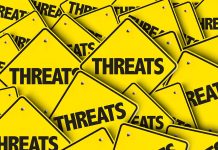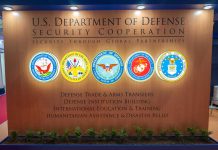
The U.S. Navy faces a serious breach of trust as two sailors are charged with espionage for allegedly sharing classified information with China.
At a Glance
- Two U.S. Navy servicemembers were arrested for transmitting sensitive military information to China.
- The arrests occurred in the Southern and Central Districts of California.
- The accused sailors are Jinchao Wei and Petty Officer Wenheng Zhao.
- The sailors face severe charges, with potential sentences ranging up to 20 years in prison.
Navy Sailors Arrested
Two U.S. Navy sailors, Jinchao Wei and Wenheng Zhao, are facing serious charges for allegedly passing classified information to the People’s Republic of China (PRC). These arrests took place in the Southern and Central Districts of California. Both sailors stand accused of compromising national security by sharing sensitive military data that could potentially undermine the U.S. defense infrastructure.
This case has brought to light the vulnerabilities present within military security systems, raising significant concerns about protocol adherence and internal security. The Department of Justice has emphasized its commitment to countering such espionage activities to safeguard national security.
Jinchao Wei, also known as Patrick Wei, was arrested at Naval Base San Diego. Wei, working as a machinist’s mate on the U.S.S. Essex, had access to highly sensitive information about the ship’s systems and operations. Wei’s interactions with a Chinese intelligence officer began in February 2022, during which he transmitted photos, videos, and detailed mechanical manuals in exchange for substantial sums of money.
Serious Allegations Against Wei
Wei’s alleged actions included the transmission of national defense information to a PRC intelligence officer and the sharing of operational plans, technical manuals with export control warnings, and details about U.S. Marine training exercises. His actions reportedly violated the International Traffic in Arms Regulations by sharing export-controlled data without the necessary licenses.
“These individuals stand accused of violating the commitments they made to protect the United States and betraying the public trust, to the benefit of the PRC government,” said Assistant Attorney General Matthew G. Olsen. “The Department of Justice will continue to use every tool in our arsenal to counter threats from China and to deter those who aid them in breaking our laws and threatening our national security.”
Petty Officer Wenheng Zhao, also known as Thomas Zhao, was similarly implicated in espionage activities. Zhao, employed at Naval Base Ventura County with a U.S. security clearance, allegedly received bribes from a PRC intelligence officer posing as a maritime economic researcher. The bribes amounted to approximately $14,866 for transmitting non-public sensitive data, including operational plans for a large-scale military exercise and blueprints for a radar system.
Breaking News: Two U.S. Navy sailors in Southern California were arrested and accused of providing military secrets and sensitive information to Chinese intelligence officers. https://t.co/C22s77OYju
— The New York Times (@nytimes) August 3, 2023
Judicial Response and Implications
Zhao employed encrypted communication methods and reportedly destroyed evidence to conceal his actions, significantly violating his official duties and his oath to protect the United States. As a result, Zhao faces a maximum penalty of 20 years in prison if convicted.
“These arrests are a reminder of the relentless, aggressive efforts of the People’s Republic of China to undermine our democracy and threaten those who defend it,” said Assistant Director Suzanne Turner of the FBI’s Counterintelligence Division. “The PRC compromised enlisted personnel to secure sensitive military information that could seriously jeopardize U.S. national security. The FBI and our partners remain vigilant in our determination to combat espionage, and encourage past and present government officials to report any suspicious interactions with suspected foreign intelligence officers.”
Both cases underscore the U.S. Department of Justice’s commitment to countering espionage and protecting national security. These developments bring to the forefront the pressing need for reinforced security measures and enhanced counterintelligence efforts to deter future espionage activities.
U.S. Navy Sailor Sentenced to 27 Months in Prison for Transmitting Sensitive U.S. Military Information to Chinese Intelligencehttps://t.co/LUNle8F22t pic.twitter.com/ppdRVBe38q
— National Security Division, U.S. Dept of Justice (@DOJNatSec) January 8, 2024
Sources
- Two U.S. Navy Servicemembers Arrested for Transmitting Military Information to the People’s Republic of China
- 2 US Navy sailors charged with providing sensitive military information to China
- https://www.cnn.com/2023/08/03/politics/navy-sailors-arrested-military-information-china/index.html
- U.S. Navy Sailor Sentenced to 27 Months in Prison for Transmitting Sensitive U.S. Military Information to Chinese Intelligence
- Two U.S. Navy sailors accused of passing secrets to China
- 2 U.S. Navy sailors arrested on charges tied to national security and China
- The sentencing of a US Navy sailor is a window into Chinese espionage. Here’s how the US should respond.
- DOJ charges 2 sailors with spying for China
- Japan-based US Navy sailor accused of espionage










